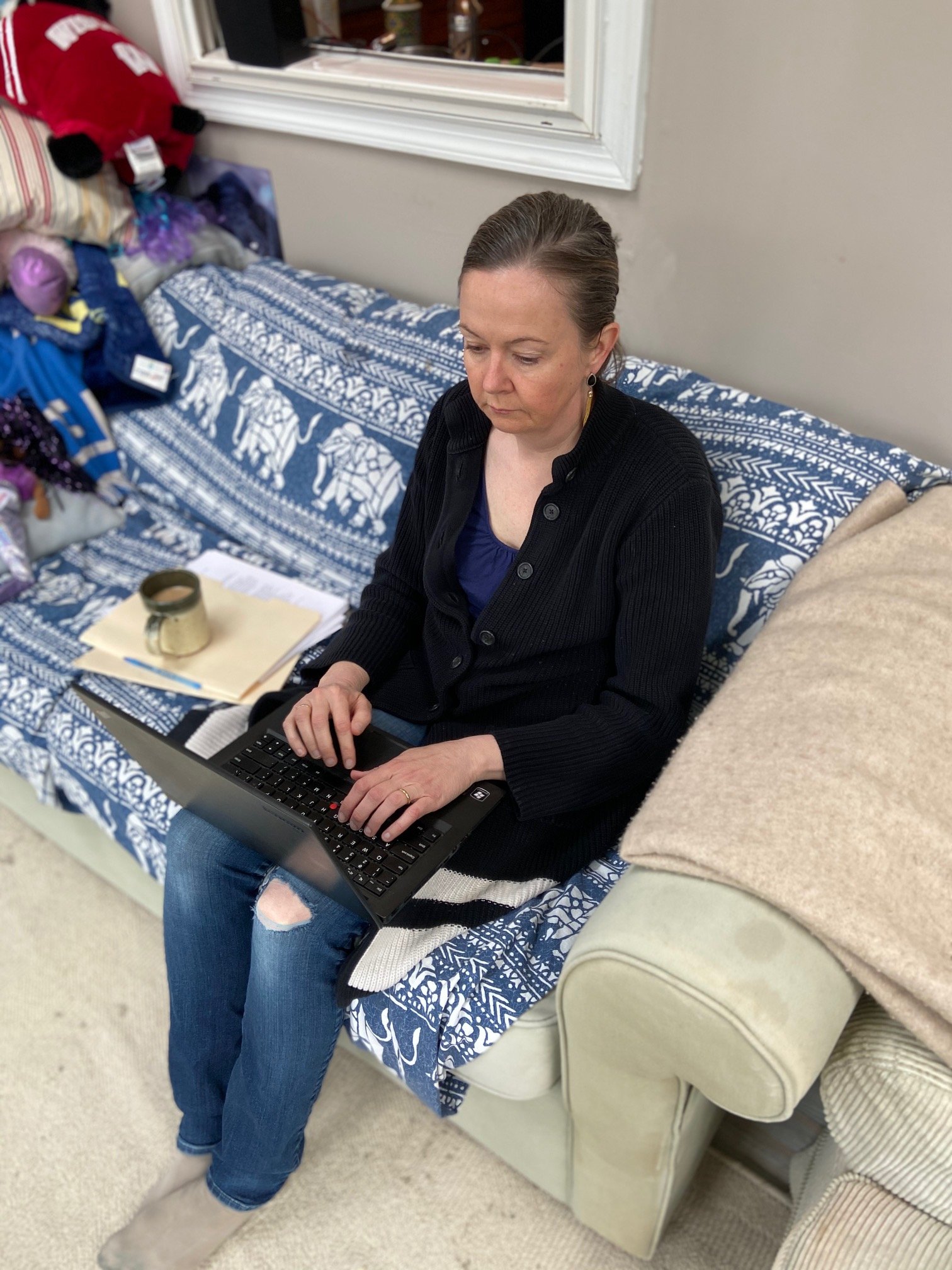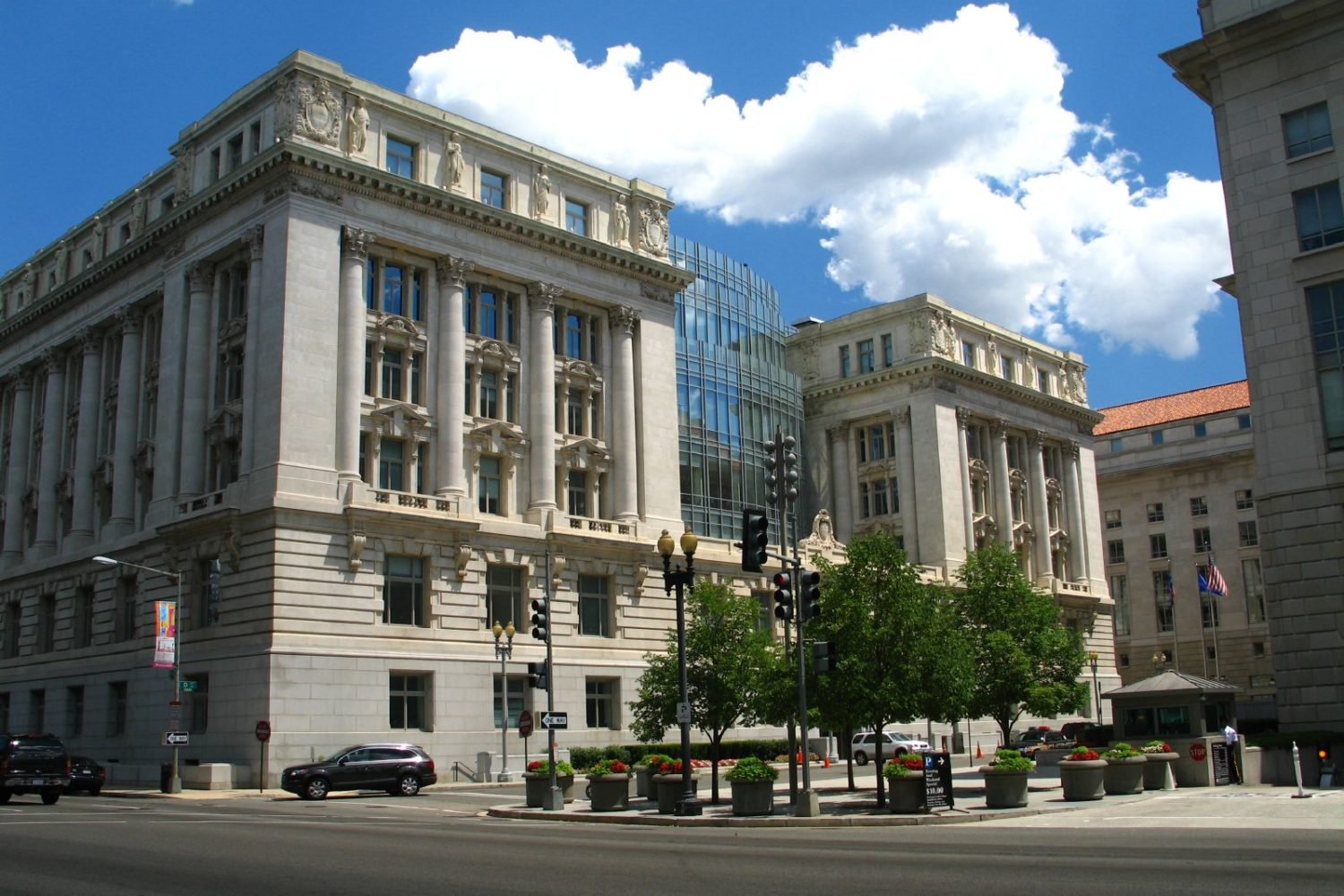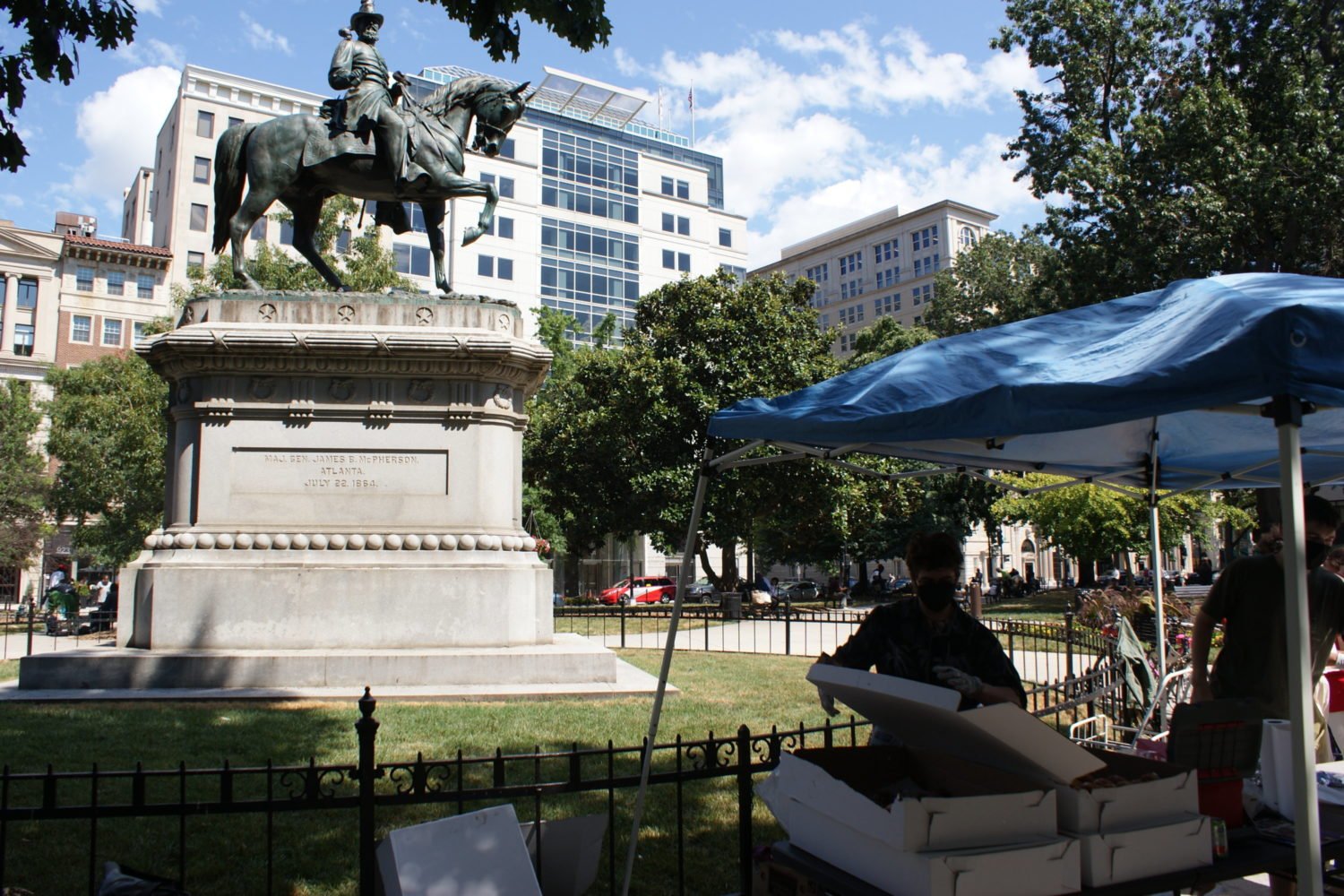About Coronavirus 2020
Washingtonian is keeping you up to date on the coronavirus around DC.
Jamila Larson is the executive director of the Homeless Children’s Playtime Project, an organization that provides volunteer playmates and play spaces to local children—aged 6 months to 12 years old—who are experiencing homelessness. Larson cofounded the organization in 2003; today, it serves between 600 and 700 children a year.
How has your organization been impacted by the pandemic?
We have had to halt our programming, which occurred each evening, Monday-Thursday, on site at each of our four partner shelter sites. We had to place our traditional playtime programming on hold starting March 16 when the schools shut down. We are fortunate to have the ability for all our staff to continue working remotely, but for families, they are stuck in small shelter rooms with few outlets, so that’s become our focus. How do we break through the isolation, provide resources and tools for families, and keep children playing? That’s the pivot we’re making now to keep connected to families.
How have you had to change your operations in order to serve the community during the crisis?
We’ve created what we’re calling “Playtime to Go” kits for families that include coloring books and art supplies, sticker and activity books, and active toys to keep children busy. We also created a flyer with a list of activities that families can easily do in their rooms, such as I Spy or creating a story with each person taking a turn. During the first week schools were closed, we (staff and volunteers) delivered the toys ourselves, but with the stay-at-home order in place we are now having the items mailed directly to the shelters. We want to keep the kits coming. We’re also calling each family we serve to check on them, hear how distance learning is going, see what they need and how we can help. Our next step will be to send them digital content like read-alouds with our staff and volunteers to make sure they know we care about them and want to stay connected.
Have you seen the fundraising environment change as a result of the pandemic? If so, how?
We have been overwhelmed by the generosity and outpouring of support from our donors and have received emergency grants to help us continue to serve children during this time. I think people understand the difficulty of experiencing homelessness when the entire nation is in a state of panic and struggling to serve people in need. Children are especially vulnerable and helping to give them something that continues to stimulate their learning and lower their stress is vital. “Playtime to Go” kits were not in our budget, but we’d like to keep them coming to each of our sites every few weeks as long as schools are closed. So we’re trying to raise $25,000 in our Spring Campaign to help us make this pivot.
How concerned are you about your organization’s ability to continue fulfilling its mission amid the pandemic?
We are deeply concerned, of course. The longer this goes on, the tougher it becomes for everyone. But I have a strong belief in our donors, our volunteers, our staff, and our families to weather this pandemic and come out of it stronger than before. If there’s one thing I can say about Playtime after 17 years in service, we have a resounding ability to be flexible and move with the ever-changing landscape to ensure children get their needs met!
What’s your organization’s most urgent need right now?
To be honest, money! Because we are all working remotely, we cannot accept donated goods, so financial contributions are essential to allow us the flexibility to purchase toys, supplies, and emergency needs online and have them shipped directly to children and families at the shelters.
What can people in the area do if they’d like to help?
Join our #HelpChildrenRise spring campaign! We currently have two donors offering challenge matches — the Robert I. Schattner Foundation and Rachel Renée Russell and Nikki Russell, author and illustrator, respectively, of the #1 New York Times best-selling book series, Dork Diaries — they have each offered a matching grant if we can raise $25,000. That means that any dollar donated turns into three. We’re encouraging supporters to create a peer-to-peer fundraising campaign to get their networks involved to increase their impact. Every contribution will ensure children living in shelters continue to get the support they need to build resiliency and reduce the stress of homelessness, especially during this stressful time.
Where are you working from these days? How has your daily routine changed?
I am working from home these days, juggling keeping our 15-staff nonprofit running with feeding my family and homeschooling busy 4- and 8-year-olds. With young children, my daily routine still starts before the sun rises, but instead of a frantic dash out the door and a rush-hour commute, after breakfast brings playtime, remote learning time, or PBS Kids time, while I hustle to get to work done on my laptop. Between my conference calls, the kids’ Zoom calls, dance class, and remote class deadlines, let’s just say I’ve burnt a few meals. Kids eat all the time, so keeping up with the household while trying to do, in essence, two full-time jobs at once is where so many working parents find themselves. I find the hours and the days run together, but children’s needs have a way of helping you live in the moment. Thank goodness for my husband who’s been in charge of distance learning for our oldest when he’s not at work. I don’t know how our largely single parents families in shelters do it without computers, living with their entire family in a single room.
What’s the most heartening or encouraging thing that you’ve witnessed or read about since the onset of the pandemic?
Seeing Italians sing together from their balcony, hearing about people sewing colorful medical masks to send to hospital personnel, and watching images of how the earth can recover from dramatic reductions in air pollution and greenhouse gas emissions is incredibly hopeful. Playtime has received countless offers from community members wanting to help our families, so it’s really heartening to know how many people are worried about folks who don’t have the privilege of “sheltering in place” with all the comforts of home.
When you get scared or stressed about the pandemic, what do you do to relieve the fear or anxiety?
Limiting news exposure, talking to my husband, and listening to music helps me. My husband’s family in Detroit initiated a family yoga class on Zoom, so that was a fun way to connect with each other and get some valuable exercise in. I am hoping we can all develop some healthy new habits that will carry over after this chapter is over.
What’s a book, movie, or pastime that you’ve rediscovered over the past week?
The only books I have time to read are children’s books to my kids, and we’ve enjoyed watching nature shows as a family. Children need to get outside and run around in the fresh air so it forces me to take breaks and not let them raise themselves all of the time. Taking walks outside to notice beautiful springtime emerging in the neighborhood and doing some backyard flower gardening has been wonderful.
What are you most looking forward to when this is all over?
Hugging people, planning camping trips again, play dates, and seeing grandparents! Reopening our playrooms to welcome children and volunteers back to Playtime, re-establishing face-to-face community!



![Luke 008[2]-1 - Washingtonian](https://www.washingtonian.com/wp-content/uploads/2017/10/Luke-0082-1-e1509126354184.jpg)

















